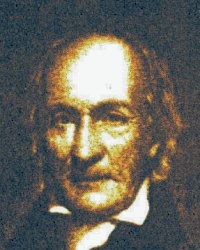Baptists like John Leland influenced the creation of our Constitution. Last week, I met a fellow author in Windsor. As we walked out of the library, I mentioned what our early Baptist forefather John Leland said, that the idea of Christian Nation “should be exploded forever.” “Oh, yes,” my friend answered. “My Christian history classes talked about him.”
John Leland
Many of my friends disagree with Leland’s POV and they’re in good company. In 2011, Focus on the Family posted an article on their website. It discussed the spiritual aspect of civil marriages. This year they again affirmed this position that the civil marriage license should have spiritual significance.
Yet, in the reality of today’s culture, civil authorities and conservative religious institutions use the word “marriage” with two different definitions and applications. Until the church and the state decouple the use of this word, situations like we now have with Kim Davis, will occur more frequently. IMHO John Leland would want to see this unlinking. Some nations (e.g. Belgium, the Netherlands, and Turkey) require a civil ceremony separate from a religious one. So, in those countries, a couple that wants to be married before God, must have a separate ceremony.

